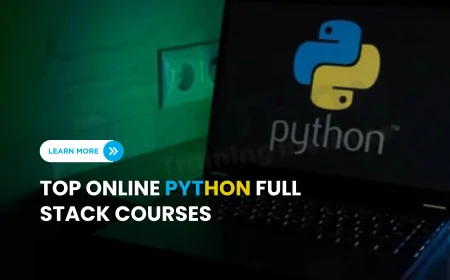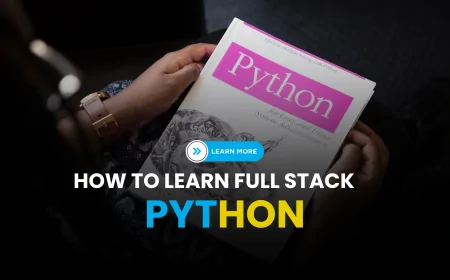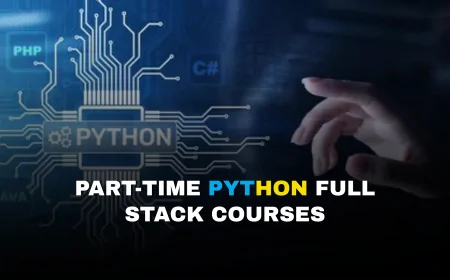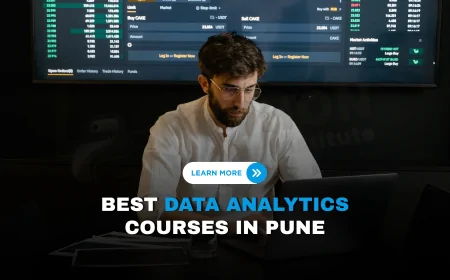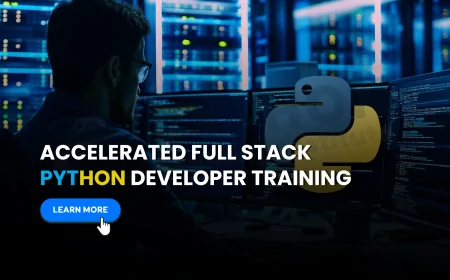Learn Flask and Python Development in Pune
Explore the best Flask and Python development courses in Pune. Learn web app creation, REST APIs, and backend development from top-rated institutes like Webasha Technologies. Includes internship options, live projects, and career support.
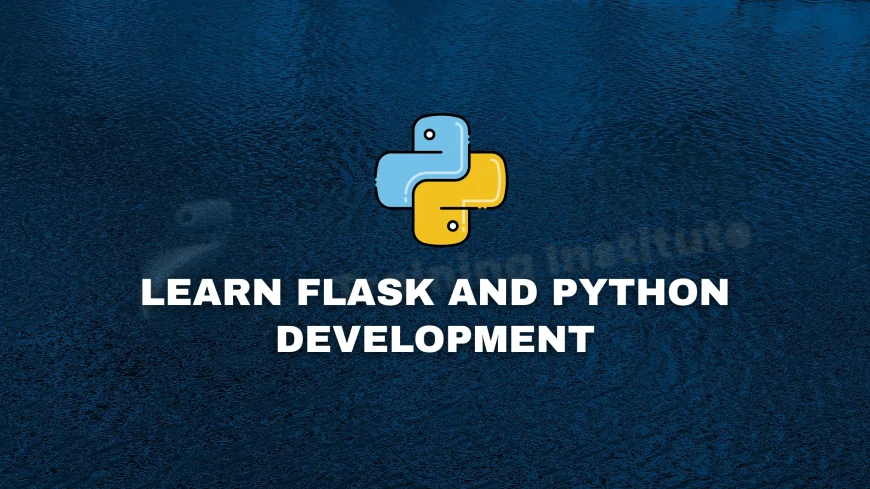
Why Learn Flask?
Flask is a **microframework** that leaves flexibility in your hands. It’s simple yet powerful, offering essentials like routing, templates (Jinja), and extensions for database, authentication, and more :contentReference[oaicite:2]{index=2}. Pune’s web development ecosystem—startups, agencies, freelancing—prefers Flask for lightweight web services, making it a smart skill to have.
Types of Flask & Python Courses in Pune
Beginner-Level Flask & Python Courses
-
Target Audience: School students, college freshers, and absolute beginners
-
Focus Areas: Python basics, control structures, functions, Flask routing
-
Popular Institutes: 3RI Technologies, ITView, Codekul
-
Duration: 4–6 weeks
-
Format: Online/offline, weekday or weekend batches
Full-Stack Python Developer Courses with Flask
-
Target Audience: Engineering students, working professionals
-
Focus Areas: Python, Flask, HTML/CSS, JavaScript, SQL, deployment
-
Key Features: Hands-on CRUD apps, integration with databases, and mini-projects
-
Popular Institutes: Ethans Tech, Webasha Technologies, Apponix Academy
-
Duration: 2–4 months
Project-Based Flask Development Workshops
-
Target Audience: Developers with basic Python experience
-
Focus Areas: REST API creation, blueprint structure, Jinja2 templating, authentication systems
-
Certification: Yes, with live project
-
Duration: 1–2 weeks (intensive bootcamps)
-
Popular Providers: Webasha Technologies, Codekul
Advanced Flask for Microservices & API Development
-
Target Audience: Backend developers, DevOps professionals
-
Focus Areas: JWT, OAuth, Swagger docs, Redis, message queues
-
Key Benefits: High ROI for developers aiming to build scalable, maintainable backend systems
-
Offered At: Ethans Tech, 3RI Technologies (Advanced Python track)
Corporate Flask & Python Training
-
Target Audience: Tech teams at startups and enterprises
-
Customization: Tailored modules including integration with ERP/CRM systems
-
Training Mode: On-site or live virtual
-
Top Providers: Webasha Technologies, Apponix Academy
Internship-Integrated Python & Flask Courses
-
Target Audience: Final-year students, freshers seeking experience
-
Focus Areas: Flask apps, Git version control, Docker, team-based projects
-
Includes: Internship certificate, mentor feedback
-
Duration: 8–12 weeks
-
Popular Institutes: Webasha Technologies, ITView
Weekend-Only Flask Courses
-
Target Audience: Working professionals
-
Flexibility: Saturday-Sunday batches, post-office hours
-
Tools Covered: VS Code, Postman, SQLite, Flask-Mail
-
Popular In: Kothrud, Aundh, Wakad centers
Top Pune Institutes for Flask Development
- Webasha Technologies: Project-based email dashboards, Flask APIs, custom modules :contentReference[oaicite:4]{index=4}.
-
Project-based training model
-
Email dashboard systems and real-world REST APIs
-
Build custom Flask extensions and modules
-
Mentorship by experienced backend developers
-
Includes Git, Docker, and deployment practices
-
Placement assistance and certificate on completion
Typical Course Curriculum
Most Pune courses cover:
- Python fundamentals and web frameworks
- Flask setup, routing, templating with Jinja
- RESTful API creation: GET, POST, CRUD
- Database integration: SQLite, SQLAlchemy
- User management: Auth, sessions, roles
- Front-end basics: Bootstrap or basic React
- Deployment: Gunicorn, Docker, Heroku/AWS
- Testing: Unit tests and API test scripts
Real-World Projects & Capstones
Hands-on projects often include:
- CRUD blog or ToDo app with user login
- REST API for e-commerce or inventory management
- Real-time chat or notification system
- Dashboard for sensor data or business analytics
- Microservices architecture using multiple Flask modules
Online vs Offline vs Hybrid
Offline classroom: Ideal for peer interaction, lab access, hands‑on mentoring.
Online live sessions: Flexibility for working professionals with interactive Q&A.
Hybrid models: Offer pre-recorded theory + weekend in-person hackathons.
Certification & Career Support
Institutes issue completion certificates, with some recognized by global platforms (Microsoft, IBM). Most provide:
- Resume reviews and interview mock sessions
- Job referrals through Pune networks
- Industry collaborations (startups, agencies) for internships
Fees & Financing Options
Typical course costs range from:
- ₹12,000–25,000 for short workshops (4–8 sessions)
- ₹30,000–60,000 for full-stack / job-oriented programs (2–4 months)
- 10–15% early-bird and group discounts common
- EMI available with 0–5% interest
Frequently Asked Questions (FAQs)
1. What makes Flask different from Django?
Flask is lightweight and modular, ideal for microservices; Django is a full-featured MVC framework.
2. Do I need prior web development experience?
No—many programs start with Python basics before introducing Flask concepts.
3. What are RESTful APIs?
APIs that use HTTP verbs to handle CRUD operations and data exchange between client and server.
4. How do I deploy a Flask app?
Typically via Gunicorn + Nginx or simple deployment on Heroku/AWS or Docker containers.
5. Is Flask good for production?
Yes—when paired with proper tooling, Flask is scalable and secure for production apps.
6. Will I build a portfolio project?
Yes—all quality courses require building real-world mini or capstone applications.
7. What libraries are essential?
Common ones include Flask, SQLAlchemy, Marshmallow, Flask-Login, and flask-restful.
8. How long is a typical program?
Varies from 4 weeks (intro) to 12–16 weeks (full-stack), based on depth.
9. Are classes available on weekends?
Yes—many institutes offer flexible scheduling for working learners.
10. Is support available after course?
Yes—mentoring, slack channels, alumni forums, and placement support are common.
11. Which IDE is used?
Visual Studio Code, PyCharm, Jupyter Notebook are popular choices.
12. Are front-end skills necessary?
Basic HTML/CSS or Bootstrap is recommended; some courses include React basics.
13. Do projects include user authentication?
Yes—secure user login, session handling, and authorization are taught.
14. Is database integration covered?
Yes—usually with SQLite or PostgreSQL and ORM via SQLAlchemy.
15. What deployment platforms are taught?
Heroku, AWS (Elastic Beanstalk), and Docker containerization are commonly covered.
16. Do I get a completion certificate?
Yes—certificates are provided, plus partner or platform-based badges.
17. What's a good Flask class size?
Batches of 10–20 are preferred for personalized mentoring.
18. Do Flask apps include APIs?
Yes—creating RESTful APIs is a major part of most curricula.
19. Can beginners get jobs?
Yes—many graduates find backend or full-stack roles after building solid portfolios.
20. How do I choose a program?
Prioritize curriculum depth, project support, placement services, and delivery mode flexibility.
Conclusion
Flask and Python training in Pune offers a practical path from zero to deployment-ready developer. With its simplicity and power, Flask optimized for RESTful APIs and microservices fills a major gap in Pune’s startup and enterprise ecosystems. Choose a program with project depth, deployment training, and career support to launch or bolster your web development journey.
What's Your Reaction?
 Like
0
Like
0
 Dislike
0
Dislike
0
 Love
0
Love
0
 Funny
0
Funny
0
 Angry
0
Angry
0
 Sad
0
Sad
0
 Wow
0
Wow
0






